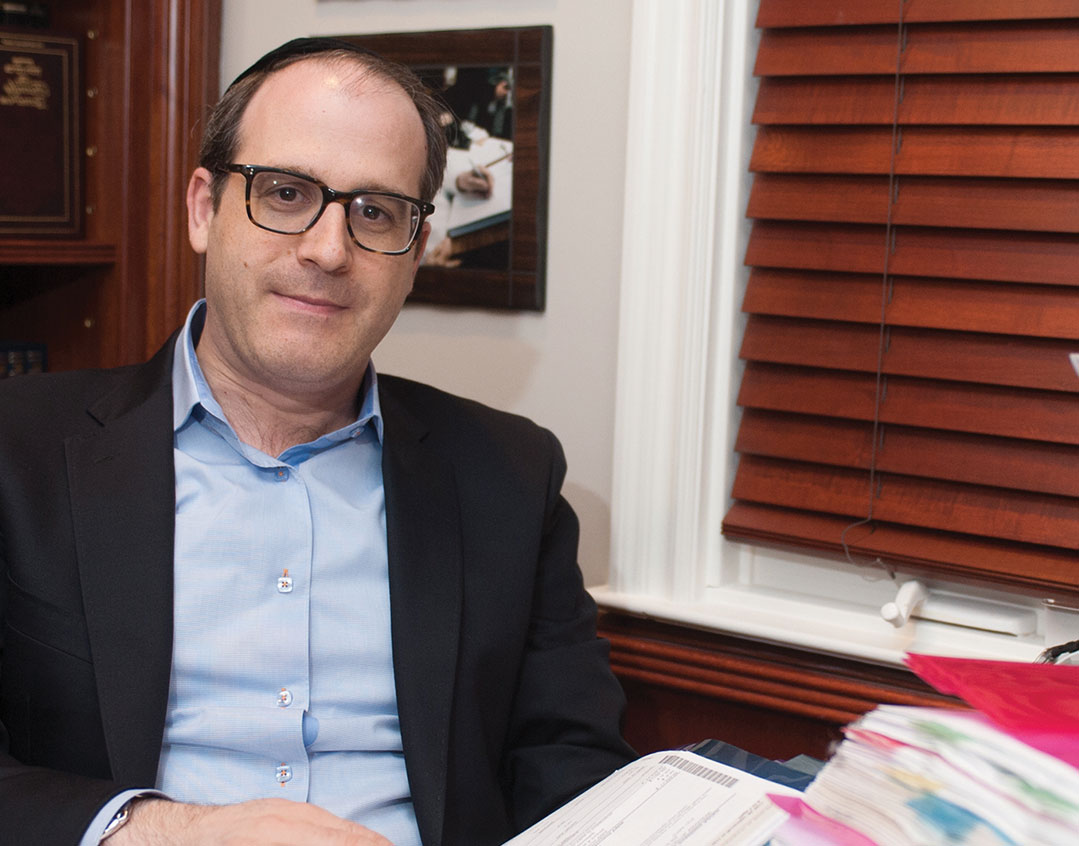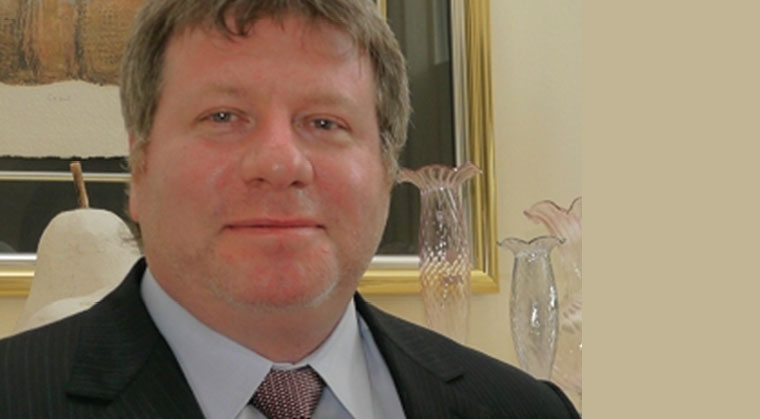Catching Up with Marc (Moshe) Bodner


Flash Back
M
arc (Moshe) Bodner keeps his business eyes skyward while keeping his feet firmly on the ground and his heart and mind focused on Hashem. That’s how I found him when I profiled him exactly five years ago for our cover story (“Job Smarts,” Issue #508): a young, Orthodox CEO who blends business smarts with Torah hashkafah and menschlichkeit.
Bodner was and still is a man willing to share lessons learned from both his successes and setbacks in an unvarnished way, as long as he can be of assistance to others.
Bodner, 48, from Flatbush, is CEO of L&R Distributors, the leading cosmetics distributor in North America and a distributor of more than 15,000 general merchandise items to a national clientele, including large supermarket and drug chains, major retailers, and the US military.
Business has grown in the past five years, and so has Moshe.
Progress Report
Growth doesn’t come without growing pains. A look at the spanking new corporate headquarters in Industry City, in the Sunset Park section of Brooklyn, and the company’s new fully automated, state-of-the-art distribution warehouse in Monroe Township, New Jersey, are sure signs of progress.
It stemmed from careful planning, due diligence, and, in the case of Monroe Township, the siyata d’Shmaya to find a suitable plot of land zoned for the plant that Moshe needed. Bodner got the plant up and running in a year but three months later realized that the seasoned management team he hired to run the facility were better suited to a more established operation than to one just getting off the ground. Bodner made the adjustment, quickly bringing in a top manager from his West Coast distribution facility who already knew L&R’s systems who got things humming.
“We learned the hard way, but the main lesson I learned — and it’s really important for business people to recognize this when it comes to making hires — is not to say someone else is doing it this way, so it must be good. You have to understand exactly what your business needs.”
Handholding after Handwringing
Robotics and automation can speed processes, but when it comes to customer service, there is no substitute for good old-fashioned handholding.
Nowadays, when customers ask the old question “What have you done for me lately?” Bodner says the time span defining “lately” has shrunk to five minutes.
“The business world has become much more risk-averse and more unforgiving in terms of loyalty,” he says. “From a customer perspective, everyone is under pressure to make their numbers in a very fast-paced economy.”
Recently, after a customer berated one of Bodner’s top salespeople, Bodner decided the first order of business was to schedule a venting session with the salesperson: “I said, first tell me everything that’s bothering you and then let’s strategize.”
Next step was to reframe the time-honored expression “The customer is always right.”
“The customer doesn’t want to hear that they’re right, and showing them what you did right in the past isn’t going to work either,” Bodner said. “They want you to fix it. The correct approach is: ‘We understand your frustration. How can we make it better for the future?’ ”
Business also has its human dimension, which calls for putting yourself in the customer’s shoes. “When someone behaves that way, you have to wonder what that person is going through,” Bodner said. “It forces you to have some compassion. And if you learn what that is, you can help them fix that problem. Ultimately, that’s how you work in business these days.”
Learning and Teaching
When I last interviewed Moshe Bodner, he had incorporated a daily mussar seder into his day, learning Shaar Habitachon from Chovos Halevavos, at the recommendation of Rabbi Meir Platnick. He considered this a basic building block to help people overcome workplace issues that make their lives miserable.
“I haven’t stopped learning Chovos Halevavos,” Bodner said, in our recent interview. He now learns it long distance, with his son who’s studying in yeshivah in Eretz Yisrael.
“I find it extremely grounding,” Bodner said. “Learning mussar is a lifelong prescription. You have to do it otherwise, kochi v’otzem yadi has a way of creeping into your life and as soon as we get into the kochi world, life becomes way too difficult, because we just don’t have control of the things we think we have control over.”
While Bodner still devotes some spare time to counseling people with their personal business crises, “demand” has dropped off because the economy has been stronger; however, it’s clear to him that “people need chizuk.”
Aside from Chovos Halevavos, he gets his from Pirkei Avos.
“It’s all there. This is really our book of ethics and our guiding principles. The struggle is to first internalize it and then to externalize it.”
He’s recently embarked on a new mission: incorporating the concept of building and maintaining trust, which is more complicated than first meets the eye. Bodner illustrated it to me with the following vignette.
“I was at a weekend bar mitzvah in Toronto. I was walking down the steps from my room with a nephew, and I asked him, ‘Would you be upset if I said I didn’t trust you?’
“He said, ‘Of course, I’d be very upset.’
“Then I asked, ‘If I said I don’t trust you to change the transmission in my car, would you also be upset?’
“He said, ‘Of course not, I don’t know the first thing about changing a transmission.’
“My point is trust has two factors: a capability factor and a character factor. I can tell you that from my own personal experience in business, and raising children, this distinction has served me extraordinarily well. If I have someone in my business who I can’t trust, and it’s a character issue, I can’t work with him. But if it’s a capability issue, I can teach and train someone to be capable. And then the onus is on me, to help them acquire that capability and build the skill set they need. That’s why understanding the meaning of trust is such an important thing in life.”
(Originally featured in Mishpacha, Issue 758)
Oops! We could not locate your form.













